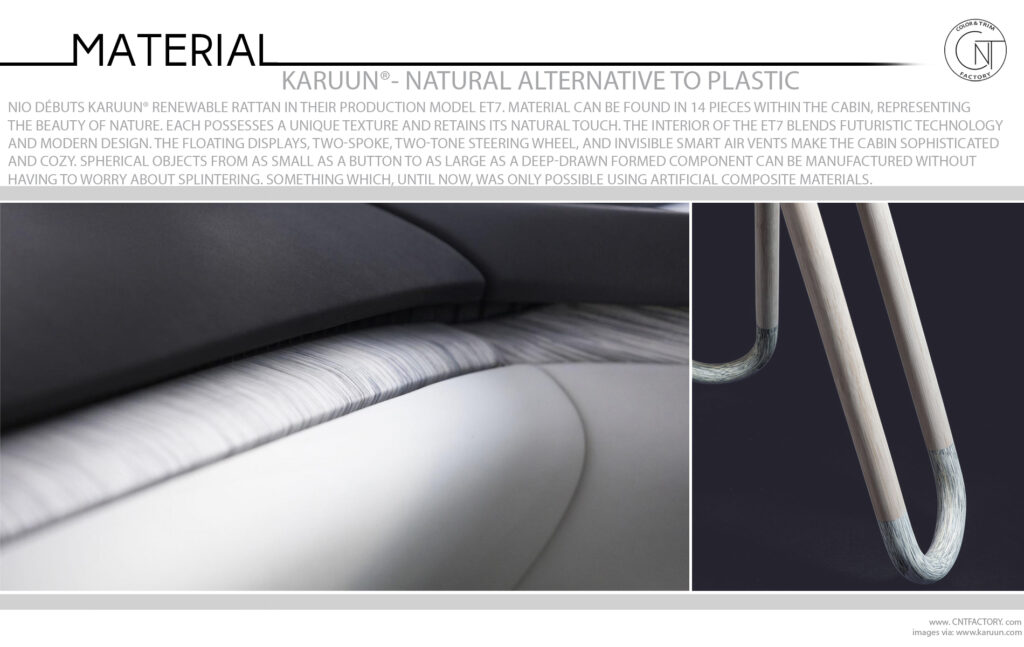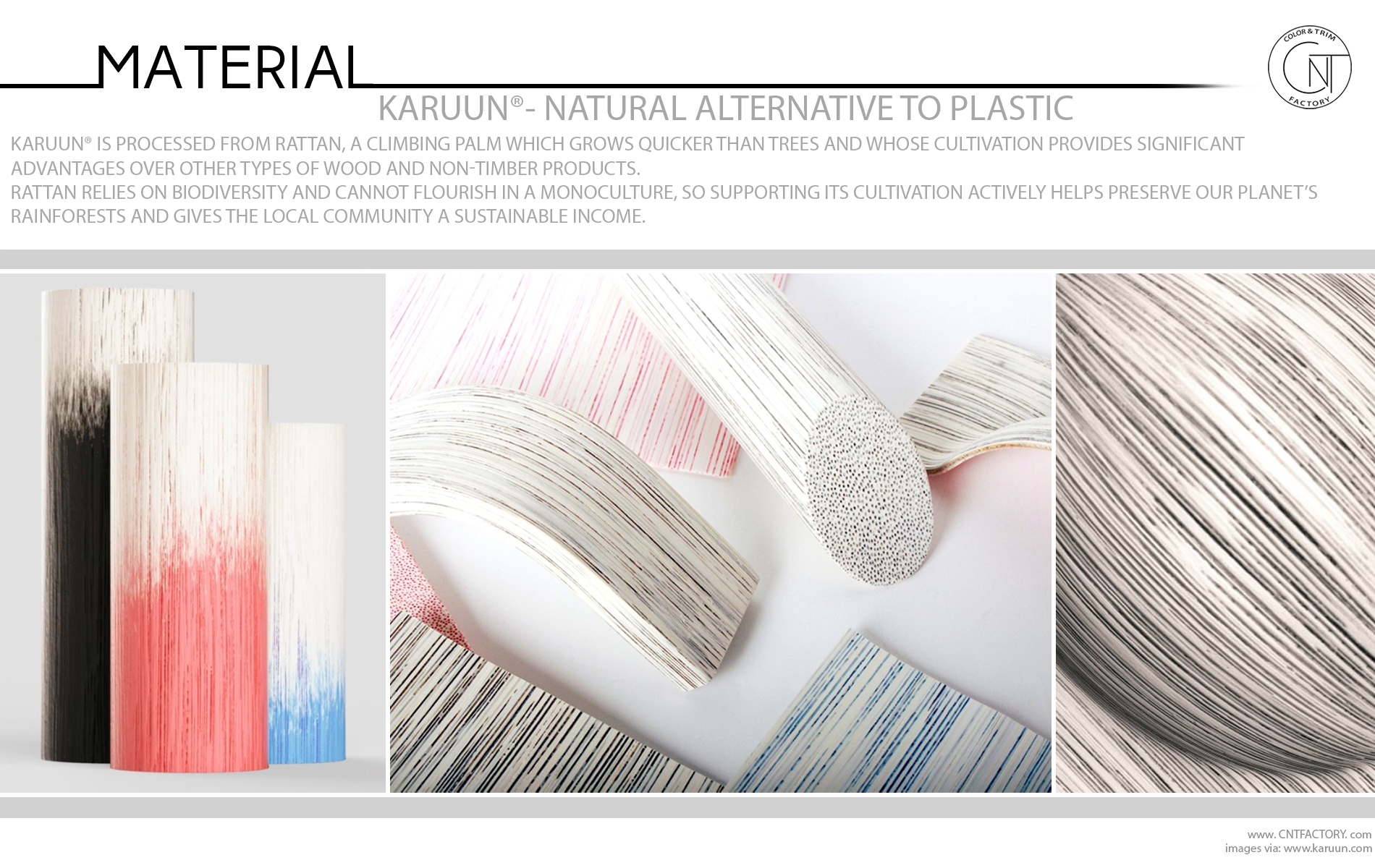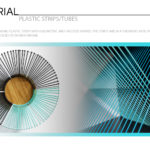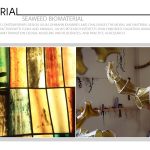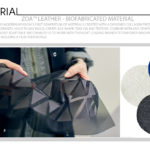Sorry, this content is for members only.
Join To View ThisRelated Post: Regenerated Nylon ECONYL® / Recycled Plastic by Ecobirdy / Sulapac® Biodegradable Material
KARUUN® is processed from rattan, a climbing palm which grows quicker than trees and whose cultivation provides significant advantages over other types of wood and non-timber products. Rattan relies on biodiversity and cannot flourish in a monoculture, so supporting its cultivation actively helps preserve our planet’s rainforests and gives the local community a sustainable income.
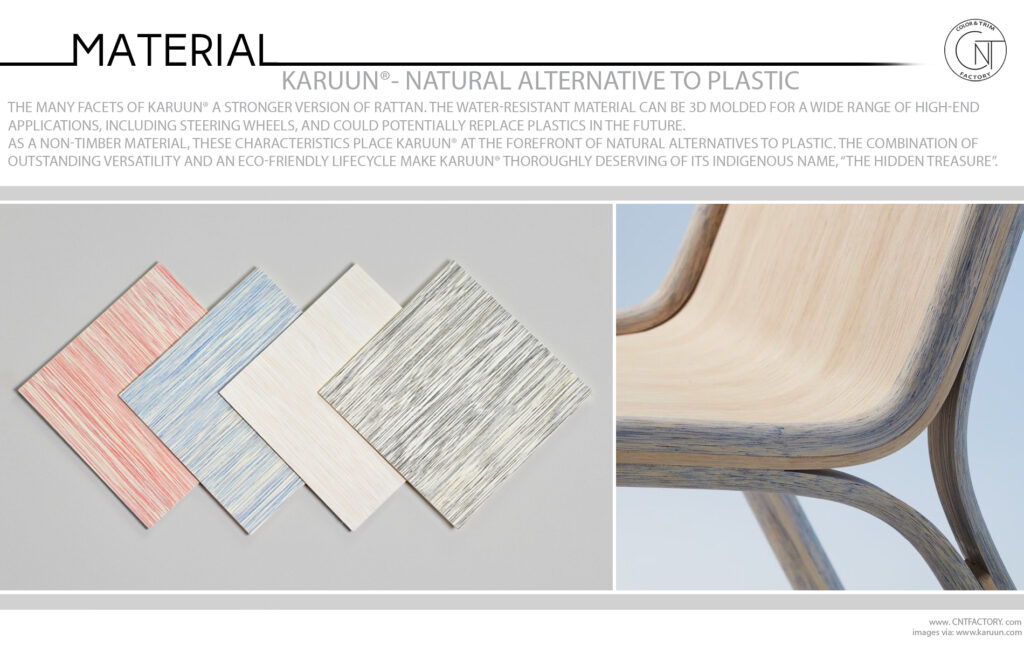
The many facets of KARUUN® a stronger version of rattan. The water-resistant material can be 3D molded for a wide range of high-end applications, including steering wheels, and could potentially replace plastics in the future.
As a non-timber material, these characteristics place KARUUN® at the forefront of natural alternatives to plastic. The combination of outstanding versatility and an eco-friendly lifecycle make KARUUN® thoroughly deserving of its indigenous name, “the hidden treasure”.
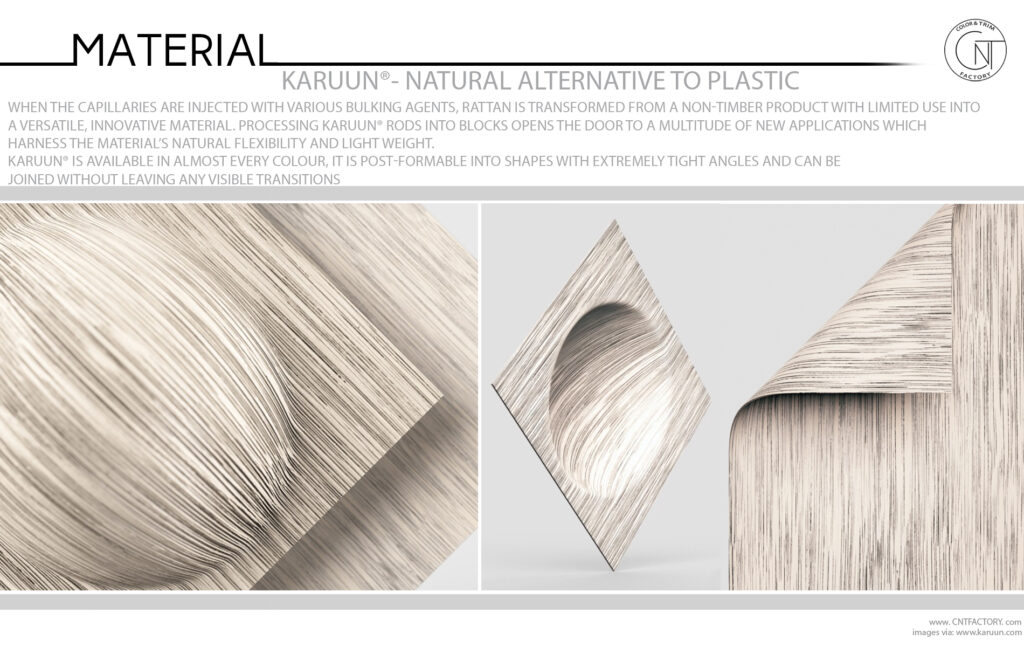
When the capillaries are injected with various bulking agents, rattan is transformed from a non-timber product with limited use into a versatile, innovative material.
Processing KARUUN® rods into blocks opens the door to a multitude of new applications which harness the material’s natural flexibility and light weight.
The homogeneous structure of the fibre is unique. Depending on the direction in which it is cut, three different KARUUN® products with various possibilities can be created.
KARUUN® is available in almost every color, it is post-formable into shapes with extremely tight angles and can be joined without leaving any visible transitions.
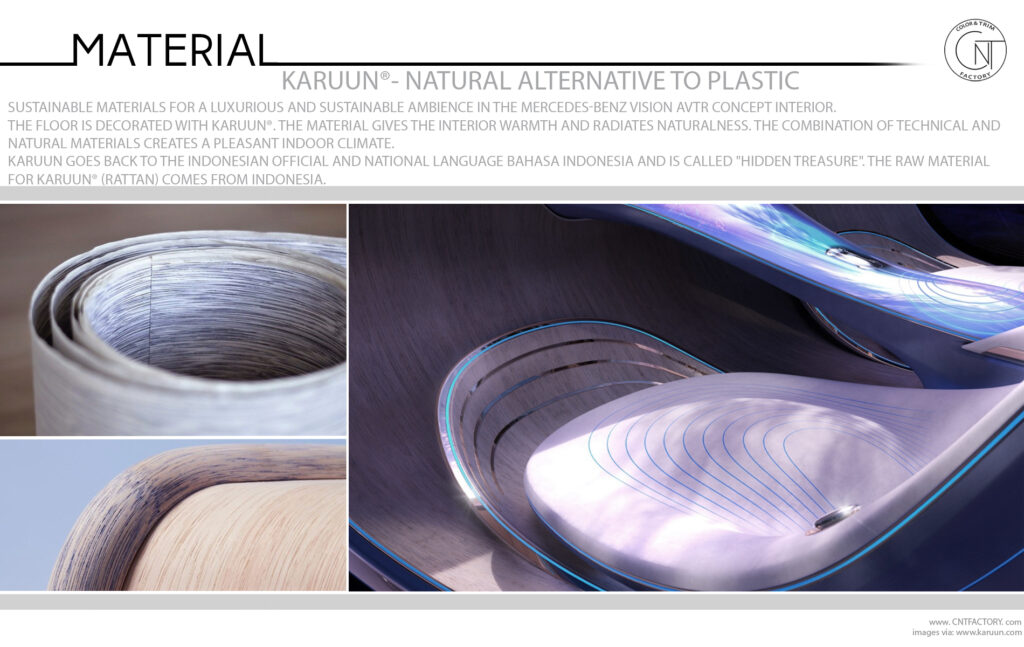
Sustainable materials for a luxurious and sustainable ambience in the Mercedes-Benz Vision Avtr Concept interior.
The floor is decorated with KARUUN®. The material gives the interior warmth and radiates naturalness. The combination of technical and natural materials creates a pleasant indoor climate.
Karuun goes back to the Indonesian official and national language Bahasa Indonesia and is called “hidden treasure”. The raw material for Karuun® (Rattan) comes from Indonesia. Rattan grows very fast and has significant advantages in cultivation over other types of wood or non-wood products. Rattan depends on biodiversity and cannot thrive in a monoculture. Therefore, the active support of its cultivation contributes to the protection of the planet’s rainforests and ensures a sustainable income for the local population. A natural feature of the plant is the symbiosis with the surrounding trees. Rattan needs the rainforest to thrive. As a natural raw material, rattan grows very quickly and is usually harvested by hand by local farmers – in an environmentally friendly way.
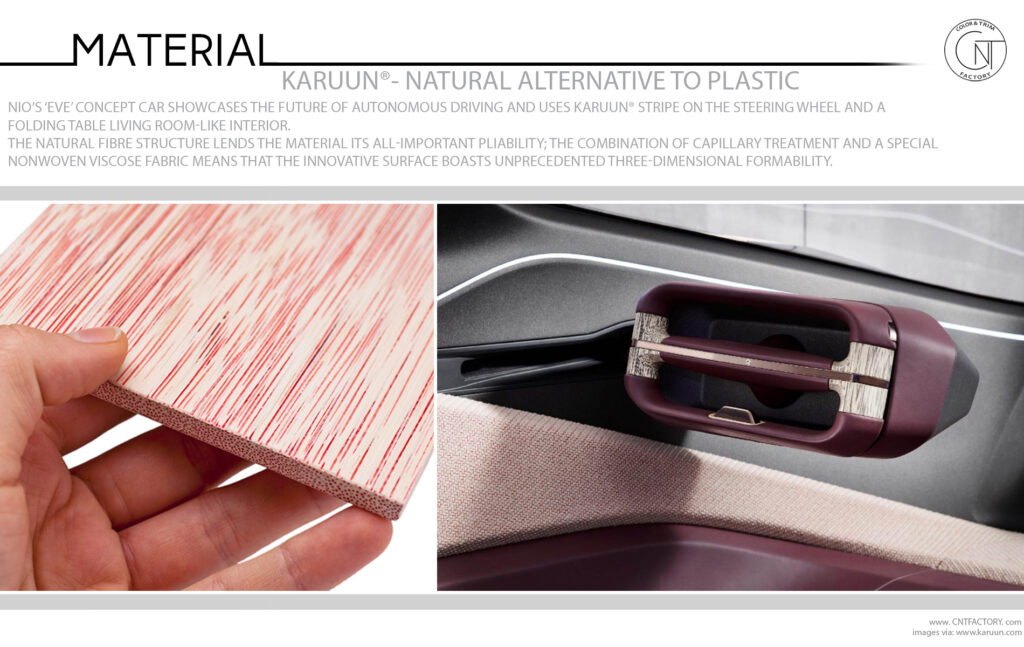
NIO’s ‘EVE’ concept car showcases the future of autonomous driving and uses KARUUN® stripe on the steering wheel and a folding table living room-like interior.
The natural fibre structure lends the material its all-important pliability; the combination of capillary treatment and a special non-woven viscose fabric means that the innovative surface boasts unprecedented three-dimensional formability.
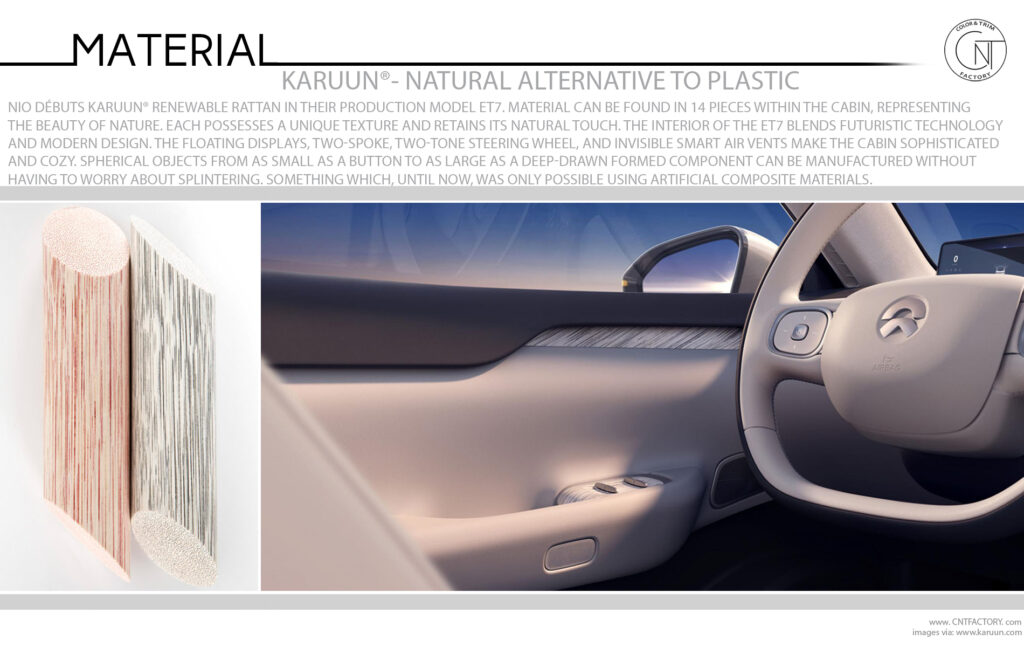
NIO débuts KARUUN® Renewable Rattan in their production model ET7.
Material can be found in 14 pieces within the cabin, representing the beauty of nature. Each possesses a unique texture and retains its natural touch.
The interior of the ET7 blends futuristic technology and modern design. The floating displays, two-spoke, two-tone steering wheel, and invisible smart air vents make the cabin sophisticated and cozy. Spherical objects from as small as a button to as large as a deep-drawn formed component can be manufactured without having to worry about splintering. Something which, until now, was only possible using artificial composite materials.
